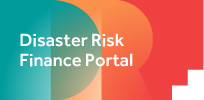La Soufrière volcano in St. Vincent and the Grenadines erupted on Friday the morning of April 9th , after being dormant since its last explosion in 1979. The volcano, which sits on the north side of St. Vincent, first started showing volcanic activity in December of 2020. As this volcanic activity increased in early April, on Thursday, April 8th, the Vincentian Prime Minister Ralph Gonsalves urged more than 16,000 residents (over 10% of the population) in “red zones” I.e., high risk areas, to evacuate. With ash fall recorded as far as the island’s Argyle International Airport on the opposite side of the island, people were urged to evacuate immediately as well, either off-island via boat, or to the island’s southern end via a single, bumper to bumper road.
The volcano has since spewed dark ash plumes 6 km (3.7 miles) into the air, covering homes across the island in a white-colored volcanic dust and rock particles. Due to the presence of smoke and dense volcanic ash plumes, water supplies throughout the island have been cut off and the islands’ airspace closed. As scientist warn eruptions could continue for days or even weeks, many Vincentians are in need of longer-term refuge. Neighboring nations of St. Lucia, Barbados, Antigua and Barbuda and Grenada have all said they are willing to accept evacuees. However, due to the ongoing Covid-19 crisis and emergency nature of the evacuation, housing evacuees is easier said than done. For people to go aboard a cruise ship or be granted temporary refuge in nearby nations, having had the vaccine will be important but the nation has only recently received 40,000 doses of COVID-19 vaccines through the COVAX Facility as of April 7th, and many of those in need of refuge remain unvaccinated. Furthermore, as those in the red zone were evacuated with little notice, many do not have their passports on them, thus PM Gonsalves is also in discussion with other Caribbean governments about accepting ID cards if individuals do not have a passport.
Currently thousands of people have been displaced and are living in shelters, while others are living with family and friends, while a handful evacuated to neighboring countries on fishing boats. Currently, providing safe drinking water is priority number one for the relief efforts according to Didier Trebucq, UN Resident Coordinator for Barbados and the Caribbean. Priority number two is the need for shelter management, and a need for cots and basic hygiene items. The UN along with the World Food Programme are working alongside the Vincentian government on digital registration of beneficiaries for cash vouchers.

